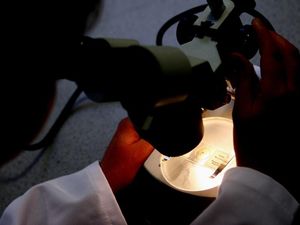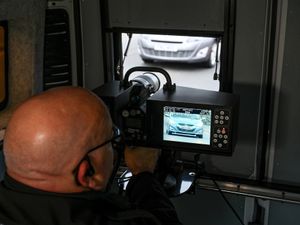Gene-edited immune cells ‘attack and kill tumours’ in first US clinical trial
Researchers extracted a group of immune cells, known as T-cells, from three cancer patients and edited their DNA.

Immune cells genetically edited to target tumours “can persist, thrive and function” months after a cancer patient receives them, scientists have said.
The findings come from the first ever US clinical trial testing the gene-editing approach in humans.
The researchers extracted a group of immune cells, known as T-cells, from three cancer patients and edited their DNA using a powerful tool called CRISPR-Cas9.
They found the genetically-engineered T-cells showed “a sustained ability to attack and kill tumours” after being re-injected back into three patients.
The researchers say their results, published in the journal Science, represent “an important step” towards the ultimate goal of using gene-editing technologies to help a patient’s immune system attack cancer.
Dr Carl June from the University of Pennsylvania and the study’s senior author, said: “Our data from the first three patients enrolled in this clinical trial demonstrate two important things that, to our knowledge, no one has ever shown before.
“First, we can successfully perform multiple edits with precision during manufacturing, with the resulting cells surviving longer in the human body than any previously published data have shown.
“Second, thus far, these cells have shown a sustained ability to attack and kill tumours.”
The team used the CRISPR technology to delete three genes from T-cells that might interfere with the immune system’s ability to fight cancer.
They then used a virus to help the T-cells attack a protein, called NY-ESO-1, typically found on cancer cells.
No harmful side-effects were reported and the engineered T-cells could still be detected nine months later.
The results from this Phase 1 clinical trial demonstrate this gene-editing approach to be safe and feasible, the researchers said.
This method, they added, is closely related to CAR T-cell therapy, in which patient immune cells are engineered to fight cancer.
Commenting on the research, Prof Waseem Qasim, a professor of cell and gene therapy at University College London, who was not involved in the study said: “The authors have set another milestone here by showing the feasibility of using CRISPR to edit human immune cells which have been engineered in the hope they might one day be a tool to help to fight cancer.
“This trial provides safety data and the results suggest the change can be delivered to the cells without obvious side effects – but of course we need to see results from larger numbers of patients in order to determine how effective the treatment is.
“These gene editing technologies are evolving rapidly and we can expect to see more trials using similar approaches.”





